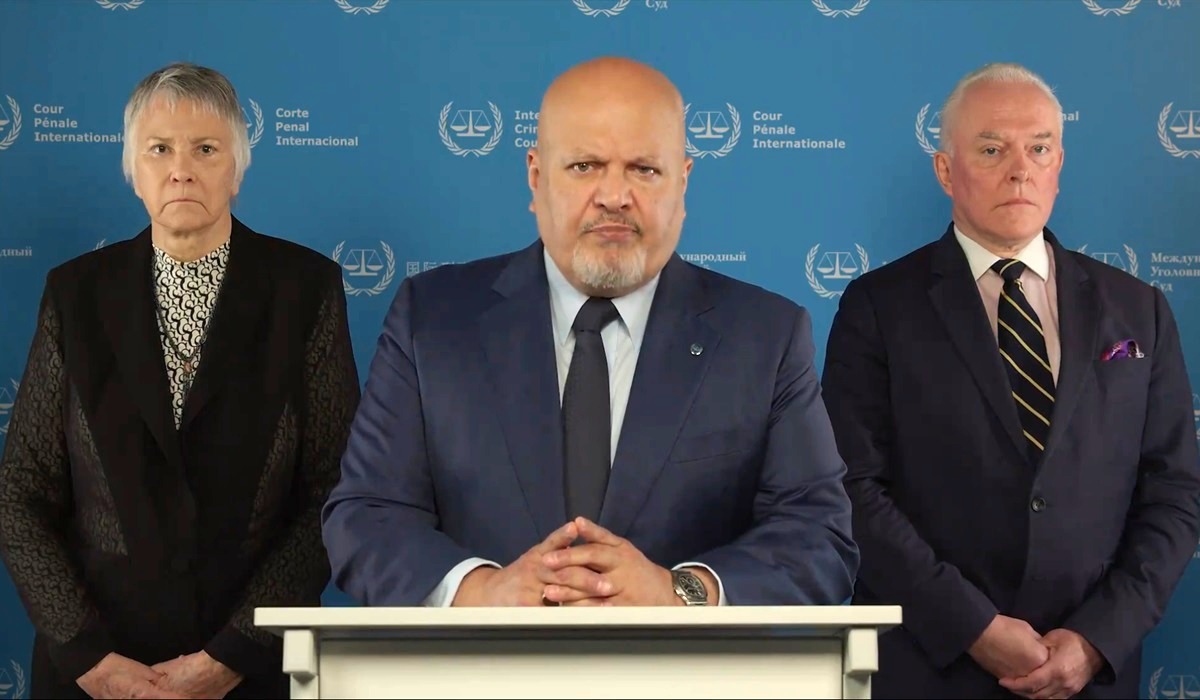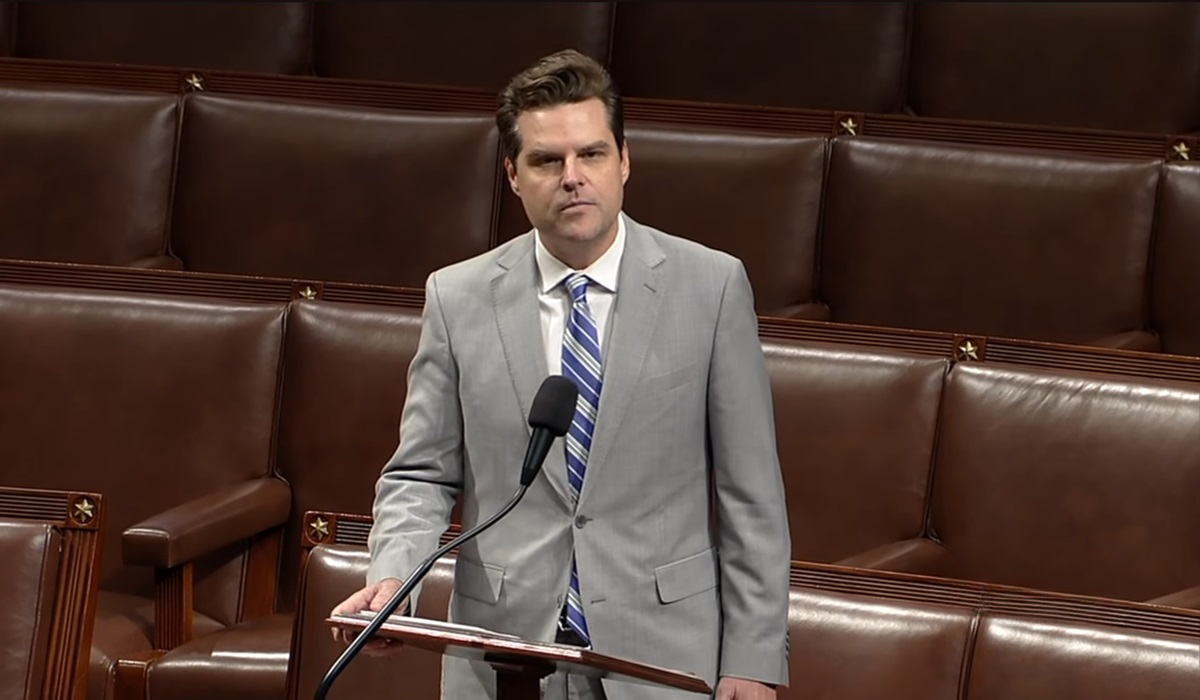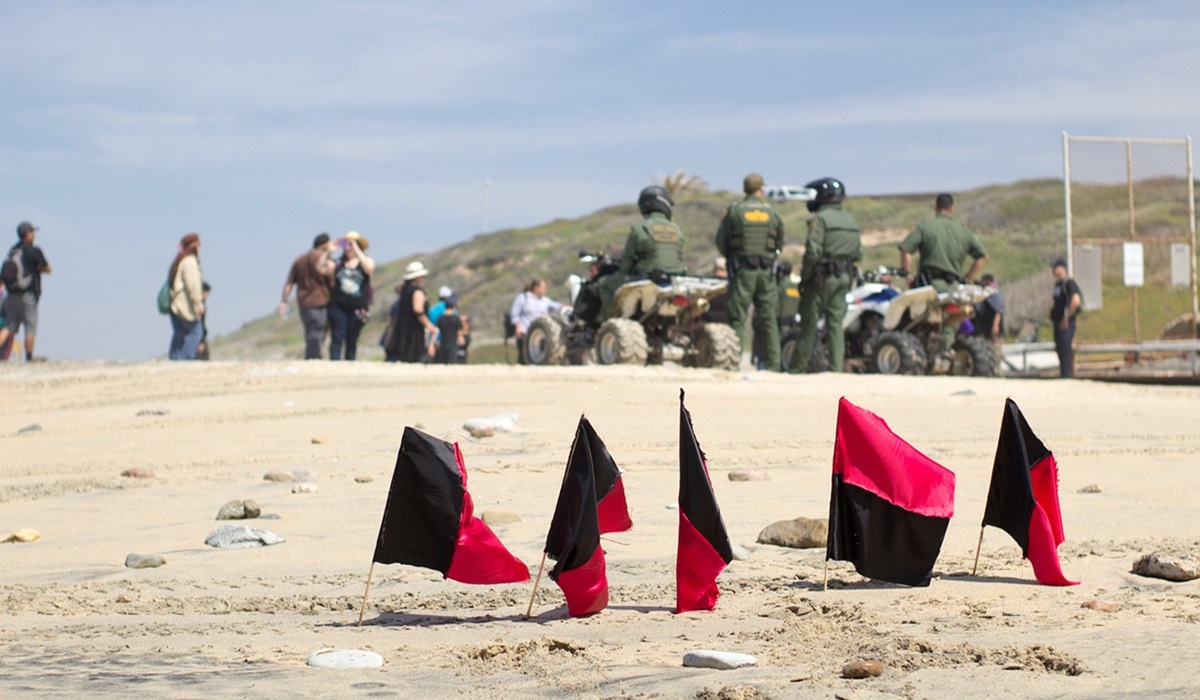ICC Issues Arrest Request Warrants for Netanyahu, Gallant and Top Hamas Leadership
- Naomi Dela Cruz
- Breaking News
- May 20, 2024

Image Credit, ICC
In a groundbreaking development, the International Criminal Court (ICC) has requested arrest warrants for Israeli Prime Minister Benjamin Netanyahu, Defense Minister Yoav Gallant, and three Hamas leaders, Yahya Sinwar, Mohammed Diab Ibrahim AL-MASRI and Ismail Haniyeh. This action represents a significant escalation in addressing the alleged war crimes committed during the long-standing Israeli-Palestinian conflict. Historically, Israel’s actions have continued with impunity, largely protected by unwavering U.S. support. However, today’s request for arrest warrants signifies a profound shift toward accountability.
The Israeli occupation of Palestinian territories began in 1967, during the Six-Day War, when Israel captured the West Bank, Gaza Strip, and East Jerusalem. Since then, Palestinians have lived under a military occupation widely condemned by international observers and human rights organizations. The construction of Israeli settlements in these territories, deemed illegal under international law, has been particularly contentious. Various human rights groups accuse Israel of implementing policies amounting to apartheid, citing systemic discrimination and repression of Palestinians.
The charges involve alleged war crimes committed during the current conflict, including targeting civilians, unlawful killings, and the use of excessive force. These actions reportedly violate the Fourth Geneva Convention, which prohibits transferring an occupying power’s civilian population into the territory it occupies and displacing the local population.
The charges against the Hamas leadership include:
- Extermination as a crime against humanity, contrary to article 7(1)(b) of the Rome Statute;
- Murder as a crime against humanity, contrary to article 7(1)(a), and as a war crime, contrary to article 8(2)(c)(i);
- Taking hostages as a war crime, contrary to article 8(2)(c)(iii);
- Rape and other acts of sexual violence as crimes against humanity, contrary to article 7(1)(g), and also as war crimes pursuant to article 8(2)(e)(vi) in the context of captivity;
- Torture as a crime against humanity, contrary to article 7(1)(f), and also as a war crime, contrary to article 8(2)(c)(i), in the context of captivity;
- Other inhumane acts as a crime against humanity, contrary to article 7(l)(k), in the context of captivity;
- Cruel treatment as a war crime contrary to article 8(2)(c)(i), in the context of captivity; and
- Outrages upon personal dignity as a war crime, contrary to article 8(2)(c)(ii), in the context of captivity.
The charges against Israeli’s Prime Minister Netanyahu and Defence Minister Gallant”
- Starvation of civilians as a method of warfare as a war crime contrary to article 8(2)(b)(xxv) of the Statute;
- Wilfully causing great suffering, or serious injury to body or health contrary to article 8(2)(a)(iii), or cruel treatment as a war crime contrary to article 8(2)(c)(i);
- Wilful killing contrary to article 8(2)(a)(i), or Murder as a war crime contrary to article 8(2)(c)(i);
- Intentionally directing attacks against a civilian population as a war crime contrary to articles 8(2)(b)(i), or 8(2)(e)(i);
- Extermination and/or murder contrary to articles 7(1)(b) and 7(1)(a), including in the context of deaths caused by starvation, as a crime against humanity;
- Persecution as a crime against humanity contrary to article 7(1)(h);
- Other inhumane acts as crimes against humanity contrary to article 7(1)(k)
For decades, the United States has been Israel’s staunchest ally, providing significant military aid and diplomatic cover. This relationship has allowed Israel to operate with considerable impunity on the international stage. Efforts to hold Israel accountable for its actions in the Palestinian territories have consistently been thwarted by the U.S. using its veto power in the United Nations Security Council. Additionally, U.S. administrations have frequently pressured other countries and international bodies, such as the ICC, to refrain from taking actions against Israel.
In response to the ICC’s request for arrest warrants, several U.S. Congress members issued a scathing letter, threatening repercussions should the court proceed with arrest warrants against Netanyahu. This letter reflects ongoing efforts by U.S. lawmakers to protect Israel from international legal scrutiny. However, the ICC’s actions indicate a resolve to uphold international law and pursue justice, regardless of political pressures.
If the ICC grants the arrest warrants, the implications will be profound. While Israel and the United States are not signatories to the Rome Statute, the treaty that established the ICC, other countries that are ICC members will be obligated to enforce the warrants. This could lead to significant diplomatic and logistical challenges for the officials named in the warrants.
Countries adhering to ICC mandates may restrict Netanyahu, Gallant, and the Hamas leaders’ travel, refusing them entry and denying access to their airspace. This would severely limit their ability to engage in international diplomacy and attend state functions. Additionally, it would place pressure on other nations to reconsider their relationships with Israel, potentially leading to broader geopolitical shifts.
ICC Prosecutor Karim A.A. Khan KC issued a statement regarding the applications for arrest warrants in the situation in the State of Palestine. He emphasized that the move is grounded in a commitment to international justice and accountability. Khan stated that the ICC’s mandate is to investigate and prosecute the most serious crimes of concern to the international community, including war crimes and crimes against humanity. He underscored that the issuance of arrest warrants is a response to the documented evidence of such crimes in the Palestinian territories.
The international community’s response to the issuance of arrest warrants will be critical in determining the future course of the Israeli-Palestinian conflict. Human rights organizations have largely welcomed the ICC’s actions, viewing them as a necessary step towards justice and accountability. Conversely, Israeli officials have denounced the move, calling it politically motivated and biased.
The United States, while continuing its support for Israel, may find itself in a challenging position as it balances its strategic alliance with Israel against growing international calls for accountability. The Biden administration, which has expressed support for a two-state solution and criticized some Israeli policies, might face increased pressure to address these issues more robustly.
The request for arrest warrants for Netanyahu, Gallant, and the Hamas leaders represents a significant moment in the pursuit of justice for Palestinians and accountability for all parties involved in the conflict. It challenges the long-standing impunity that has characterized Israel’s occupation and treatment of Palestinians. As the ICC moves forward, the international community will closely watch to see if this action heralds a new era of accountability and justice in the region. Regardless of the immediate outcomes, today’s developments underscore the growing global consensus that the status quo is untenable and that substantive changes are necessary to achieve lasting peace and justice.








